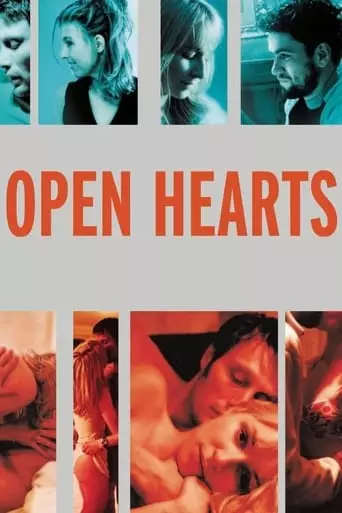North Carolina mountains at the end of the 1920s – George and Serena Pemberton, love-struck newly-weds, begin to build a timber empire. Serena soon proves herself to be equal to […]

North Carolina mountains at the end of the 1920s – George and Serena Pemberton, love-struck newly-weds, begin to build a timber empire. Serena soon proves herself to be equal to […]

Detectives and best friends Andreas and Simon lead vastly different lives; Andreas has settled down with his beautiful wife and son; while Simon, recently divorced, spends most of his waking […]

A recent widow invites her husband’s troubled best friend to live with her and her two children. As he gradually turns his life around, he helps the family cope and […]

A Danish officer, Michael, is sent away to the International Security Assistance Force operation in Afghanistan for three months. His first mission there is to find a young radar technician […]

A manager of an orphanage in India is sent to Copenhagen, Denmark, where he discovers a life-altering family secret. After the Wedding, directed by Susanne Bier, is a gripping Danish […]

Cecilie and Joachim are about to get married when a freak car accident leaves Joachim disabled, throwing their lives into a spin. The driver of the other car, Marie, and […]

The lives of two Danish families cross each other, and an extraordinary but risky friendship comes into bud. But loneliness, frailty and sorrow lie in wait.

Ida, a Danish hairdresser who has lost her hair to cancer, returns home from the hospital one day to find her husband is cheating on her. She decides to travel […]
Susanne Bier: A Visionary Director Bridging Global Cinema
Susanne Bier is an acclaimed Danish director whose career spans both intimate dramas and high-profile international projects. Known for her emotionally charged narratives and sharp visual storytelling, Bier has become one of the most celebrated filmmakers in contemporary cinema. From her early work in Denmark to her success in Hollywood, Bier has consistently demonstrated her ability to craft compelling stories that resonate deeply with audiences worldwide.
Early Life and Career Beginnings
Born on April 15, 1960, in Copenhagen, Denmark, Susanne Bier grew up in a multicultural environment, with parents who had emigrated from Germany. She studied architecture at the Architectural Association in London before transitioning to filmmaking, pursuing a degree at the National Film School of Denmark. Bier’s diverse background and education have influenced her storytelling, often reflecting themes of displacement, connection, and human resilience.
Her early works, such as Freud Leaving Home (1991) and The One and Only (1999), gained attention for their heartfelt exploration of personal relationships, laying the groundwork for her international career.
Breakthrough with the Dogme 95 Movement
Bier gained global recognition through her involvement with the Dogme 95 movement, a Danish film collective known for its raw, naturalistic approach to filmmaking.
Open Hearts (2002):
Made under the Dogme manifesto, this film explores the aftermath of a tragic car accident that intertwines the lives of two couples.
Praised for its authenticity and emotional depth, it established Bier as a leading voice in Danish cinema.
Collaboration with Anders Thomas Jensen
Bier’s partnership with screenwriter Anders Thomas Jensen resulted in some of her most acclaimed films:
Brothers (2004):
A gripping drama about the psychological fallout of war on a soldier and his family.
Won international accolades and was later remade in Hollywood, starring Tobey Maguire and Jake Gyllenhaal.
After the Wedding (2006):
Plot: A man running an orphanage in India returns to Denmark for a business deal that unveils long-buried secrets.
Impact: Nominated for an Academy Award for Best Foreign Language Film, solidifying Bier’s reputation on the global stage.
In a Better World (2010):
Themes: Tackled the moral complexities of violence, revenge, and forgiveness through interconnected stories.
Recognition: Won the Academy Award and Golden Globe for Best Foreign Language Film, marking Bier as a master of socially conscious cinema.
Hollywood Transition and Wider Recognition
Bier’s success in Denmark led to opportunities in Hollywood, where she continued to explore human connection and resilience in diverse genres:
Things We Lost in the Fire (2007):
A poignant drama starring Halle Berry and Benicio Del Toro, focusing on grief and healing.
Showcased Bier’s ability to bring her intimate style to English-language projects.
Serena (2014):
A period drama starring Jennifer Lawrence and Bradley Cooper, examining ambition and betrayal.
While receiving mixed reviews, the film highlighted Bier’s talent for directing powerhouse performances.
Global Success with The Night Manager and Bird Box
Bier achieved widespread acclaim with:
The Night Manager (2016):
A television miniseries adaptation of John le Carré’s novel, starring Tom Hiddleston and Hugh Laurie.
Praised for its tension-filled storytelling and lavish production, it won a Golden Globe for Best Director.
Bird Box (2018):
A Netflix thriller starring Sandra Bullock, set in a post-apocalyptic world where sight leads to certain death.
Impact: Became a cultural phenomenon, with over 45 million views in its first week.
Reinforced Bier’s ability to craft suspenseful, character-driven narratives for a global audience.
Recurring Themes and Filmmaking Style
Susanne Bier’s films are marked by:
Human Emotion: Bier excels at exploring the intricacies of relationships, morality, and personal struggles.
Cross-Cultural Perspectives: Her stories often bridge cultural divides, reflecting her own multicultural background.
Intimacy and Authenticity: Whether directing large-scale thrillers or intimate dramas, Bier’s work is characterized by emotional authenticity.
Visual Elegance: She combines naturalistic settings with striking visual compositions, enhancing the emotional weight of her stories.
Legacy and Influence
Susanne Bier is a trailblazer, not only as a director but also as a prominent female voice in a predominantly male-dominated industry. Her ability to transition seamlessly between Danish and international projects has set a benchmark for filmmakers aiming to balance personal storytelling with universal appeal.
Her contributions to cinema have earned her numerous accolades, including an Academy Award, a Golden Globe, and multiple European Film Awards. She remains a source of inspiration for emerging directors worldwide, particularly women striving to make their mark in film.
Conclusion
Susanne Bier’s career is a testament to the power of storytelling that transcends cultural and linguistic boundaries. Whether through emotionally charged dramas or gripping thrillers, Bier’s work resonates with audiences by exploring the shared complexities of human experience. As she continues to push creative boundaries, Bier solidifies her place as one of the most impactful filmmakers of her generation.